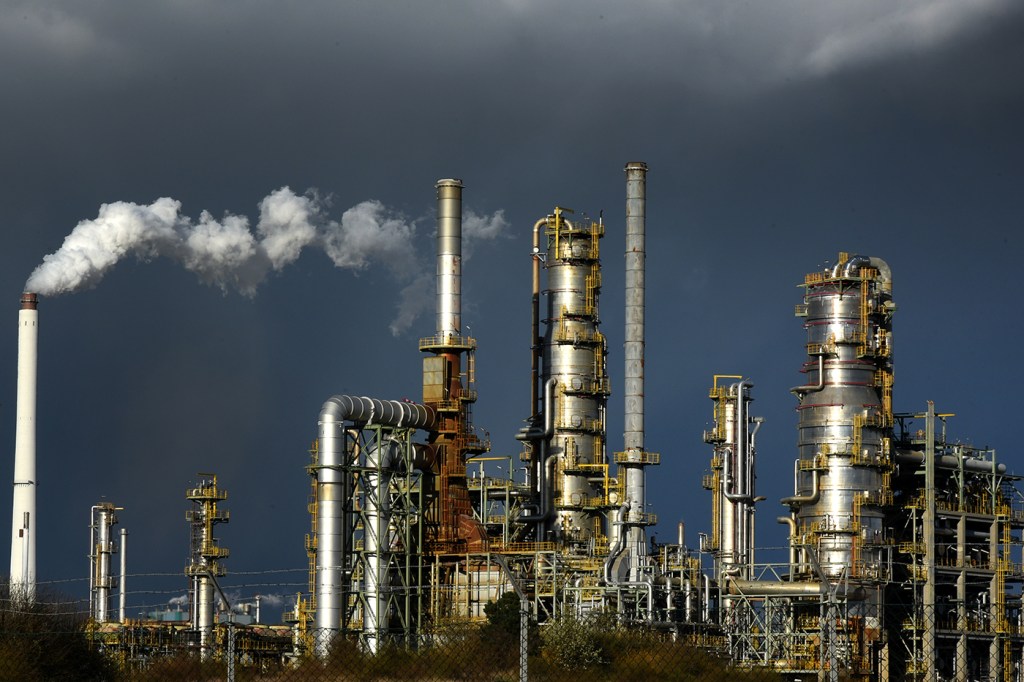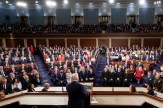Tapping into the oil reserve

This report is part of ongoing coverage of the Russia-Ukraine war. Visit our dedicated page for more on this topic.
Two weeks ago, President Joe Biden ordered the release of 1 million barrels of oil per day from the country’s petroleum stockpile for the next six months.
The United States’ Strategic Petroleum Reserve, a collection of underground salt caverns, was created following the Arab oil embargo of the 1970s, which was when the U.S. and other Western countries faced substantial petroleum shortages, fueling elevated oil prices. The oil crisis arose after Arab oil producers cut off exports to protest U.S. military support for Israel in its 1973 war with Egypt and Syria.
The petroleum reserve was created to provide the American people with a supply that can be used in case of an emergency. The reserve, which is located in Texas and Louisiana, holds up to more than 700 million barrels of oil, but according to the U.S. Energy Department only holds 560 million barrels presently.
This is the third time the Biden-Harris administration has tapped the reserve, but it’s not the first time it’s been touched within U.S. history.

Left to right: Nada Sanders, distinguished professor of supply-chain management and Nick Beauchamp, assistant professor of political science at Northeastern. Photos by Adam Glanzman and Alyssa Stone/Northeastern University
In 1991, President George H.W. Bush ordered the withdrawal of almost 34 million barrels during the Gulf War, but 17 million barrels were used at the time. Also in 2011, President Barack Obama authorized the release of 30 million barrels to balance out the disruption of supply from Libya.
During Biden’s State of the Union speech in March 2021, he ordered the release of 50 million barrels of oil. In November 2021, he authorized another 30 million barrels in order to boost the oil supply.
Now, Biden is tapping into the reserve again to combat the nation’s current oil crisis and control the energy prices that were rising slowly, but have recently skyrocketed due to global leaders imposing sanctions on Russia over the war in Ukraine.
This is the largest release of oil from the Strategic Petroleum Reserve in U.S. history and will decrease the amount of oil to 384.6 million barrels by the time the six months concludes, which ABC News reports is a 40% drop for the reserve since Biden took office in January 2021.
But the question remains, should the president or any future president ever tap into the reserve, and is it really in the best interest of the American people?
“We should not be giving an inch to the fossil fuel industry. And I wouldn’t even be tapping into the reserves at this point,” says Nada Sanders, distinguished professor of supply-chain management at Northeastern. “Once you dip into it, you have to replenish it. Replenishing it means the green light to drill more–the green light for the oil companies, and I find that to be extremely disturbing.”
The U.S. Energy Department reported that in 2021, the nation consumed an average of nearly 20 million barrels of petroleum a day. The president said it’s unknown if gas prices will decline drastically, but he suggests in the coming months that it might be “anything from 10 cents to 35 cents a gallon.”
“In terms of when one compares simple usage, what the usage is on a daily basis to the amount that will be released, what would it do? It would do nothing,” Sanders says. “It’s going to do nothing [for oil prices], but it’s going to be really detrimental.”
NPR reports that Bob McNally, who’s a consultant with a firm called Rapidan and who worked on crude oil issues under the George W. Bush White House, says, “I doubt that even this big of a release is going to keep crude oil prices, and therefore gasoline prices, from rising further. And that’s because Russia is the world’s largest oil exporter.”
The Associated Press reports that even if crude oil prices don’t drop, Biden can argue that he at least tried by tapping into the reserve.
“No one thinks that the effect on gas prices is going to be particularly large, so if those things are true, then it almost has to be purely political,” says Nick Beauchamp, assistant professor of political science at Northeastern.
Following Biden’s latest order, the White House reported that it predicts that domestic production of oil is expected to increase by 1 million barrels per day this year and nearly 700,000 barrels per day next year.
“They use up those barrels, and then they buy them again when prices go down a little bit. When this war [in Ukraine] is over they’ll probably go down by a decent amount,” Beachamp says. “On the other hand, no one knows whether the war will go on for two weeks, two years, or 20 years.”
For media inquiries, please contact media@northeastern.edu.






